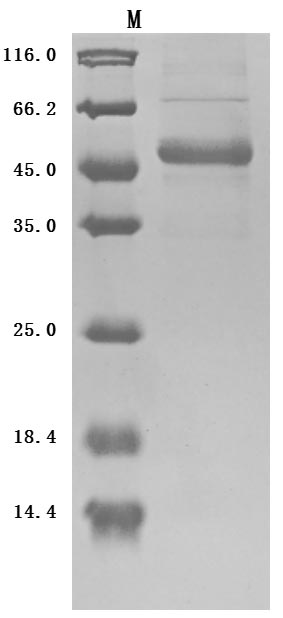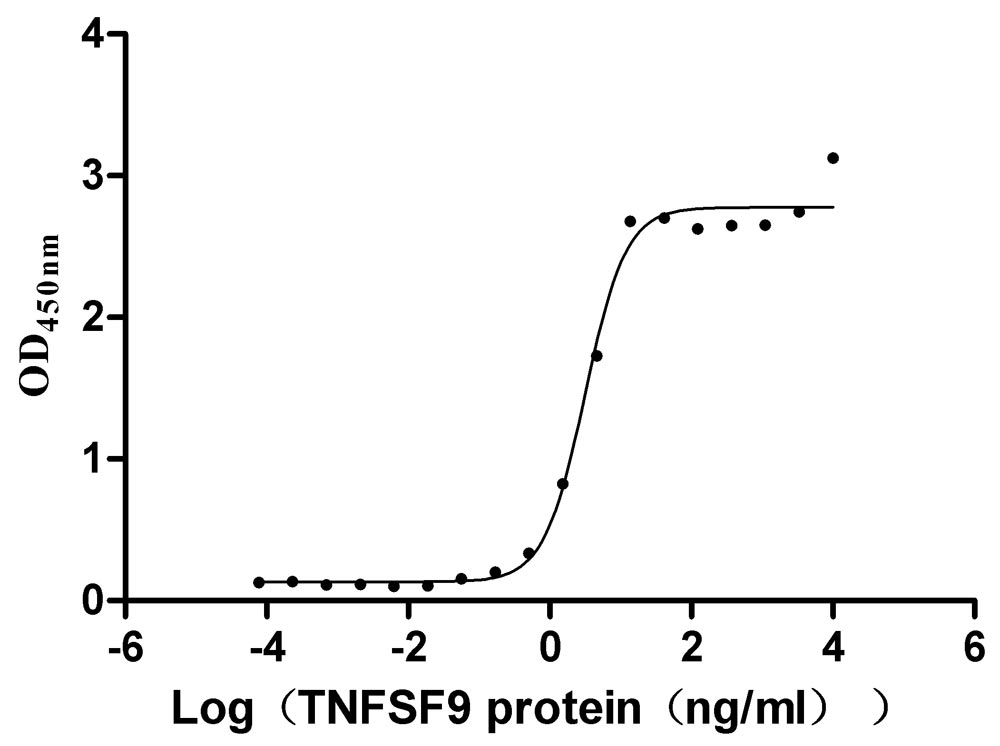The recombinant human TNFSF9 protein is an active protein generated in mammalian cells. Its expression region encodes the Arg71-Glu254 of human TNFSF9. It is tagged a human Ig1 Fc-Myc at the N-terminus. The purity of this TNFSF9 protein is greater than 90% measured by SDS-PAGE. It contains less than 1.0 EU endotoxin per ug protein determined by the LAL method. Its biological activity was assayed by binding toTNFRSF9 in a functional ELISA, and the EC50 is 2.671-3.702 ng/mL.
TNFSF9, also called 4-1BBL, is the natural ligand for TNFRSF9 (4-1BB) and is mainly expressed on activated antigen-presenting cells, including macrophages, monocytes, dendritic cells, B cells, and activated T cells. TNFSF9 is also detected on the surface of some cancer cells. TNFSF9 interacting with TNFRSF9 recruits TRAFs, especially TRAF2, activating the NF-κB pathway and MAPK pathway involving T cell activation, proliferation, differentiation, and apoptosis. TNFSF9/TNFRSF9 signaling has been found to mediate anti-tumor immune responses in immune cells such as T cells, NK cells, and APC, which suggests its potential to be a new antitumor biotherapy.








